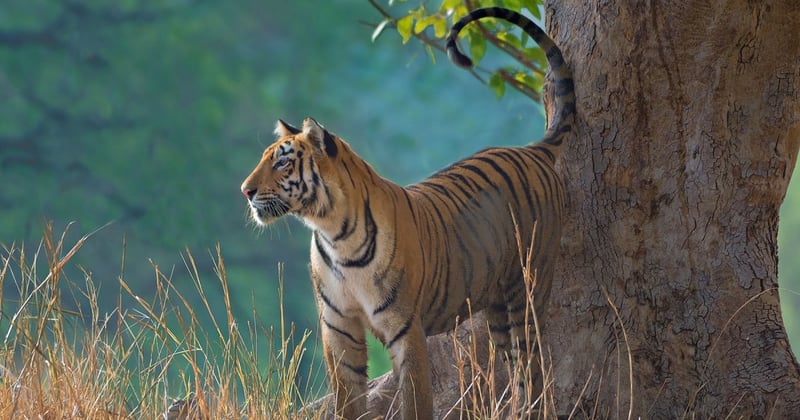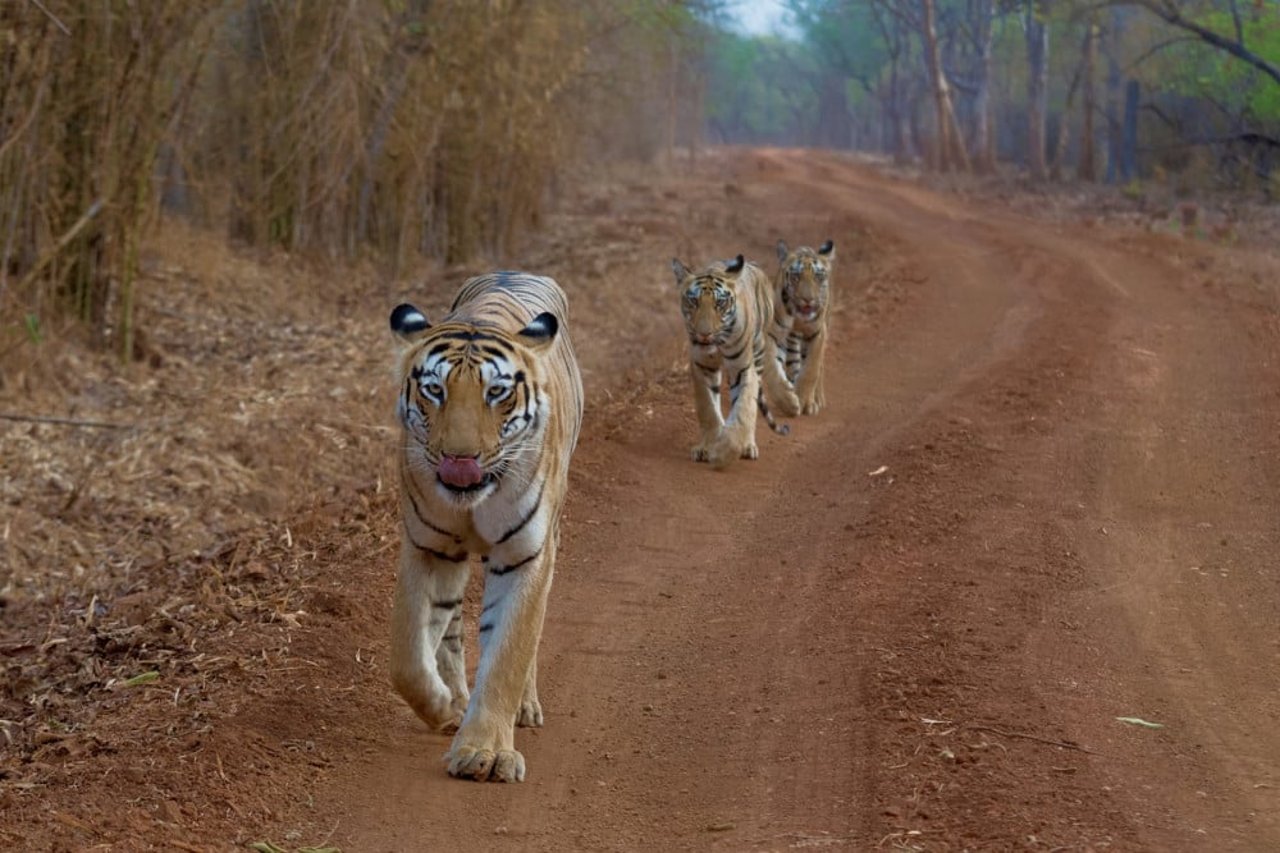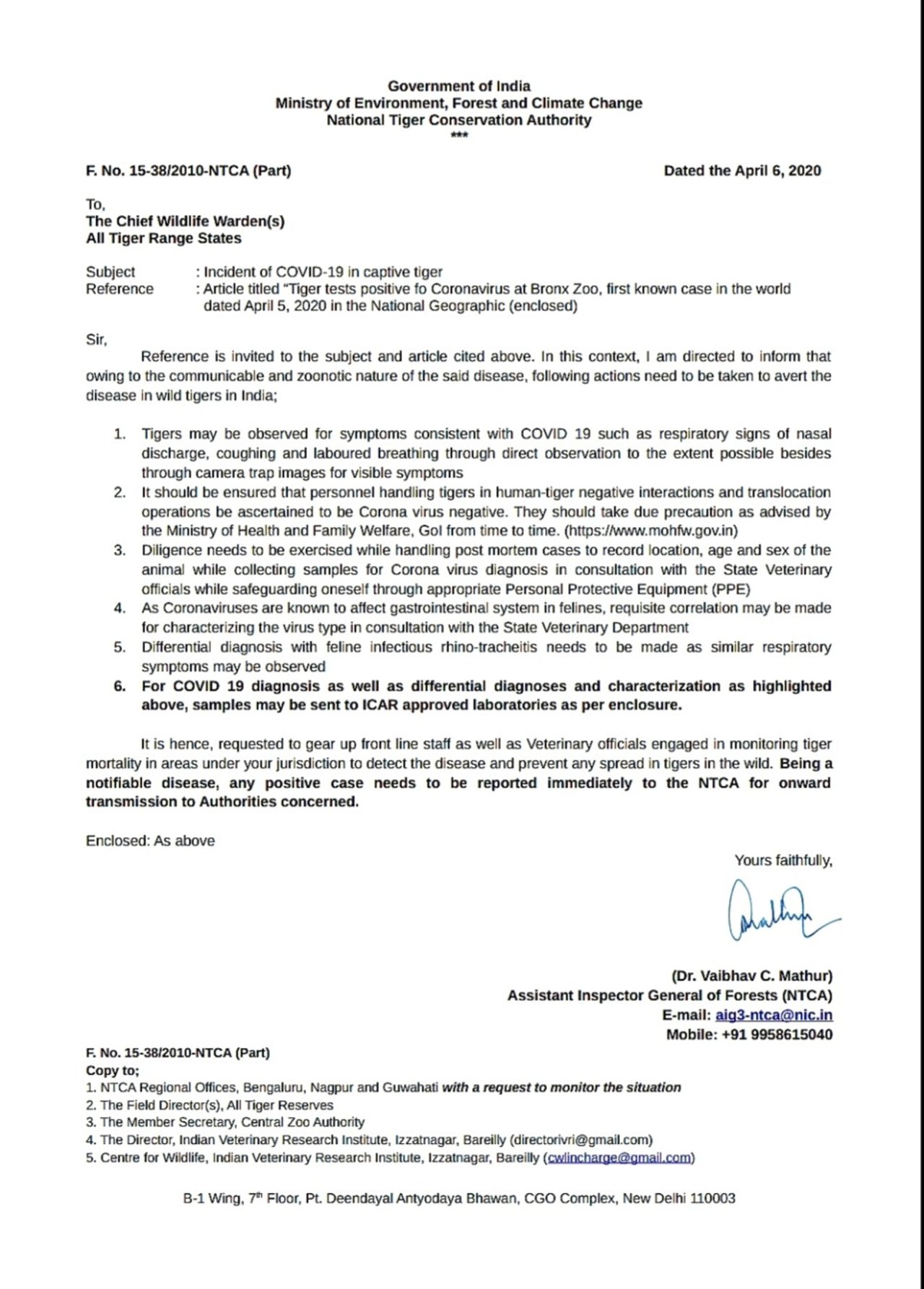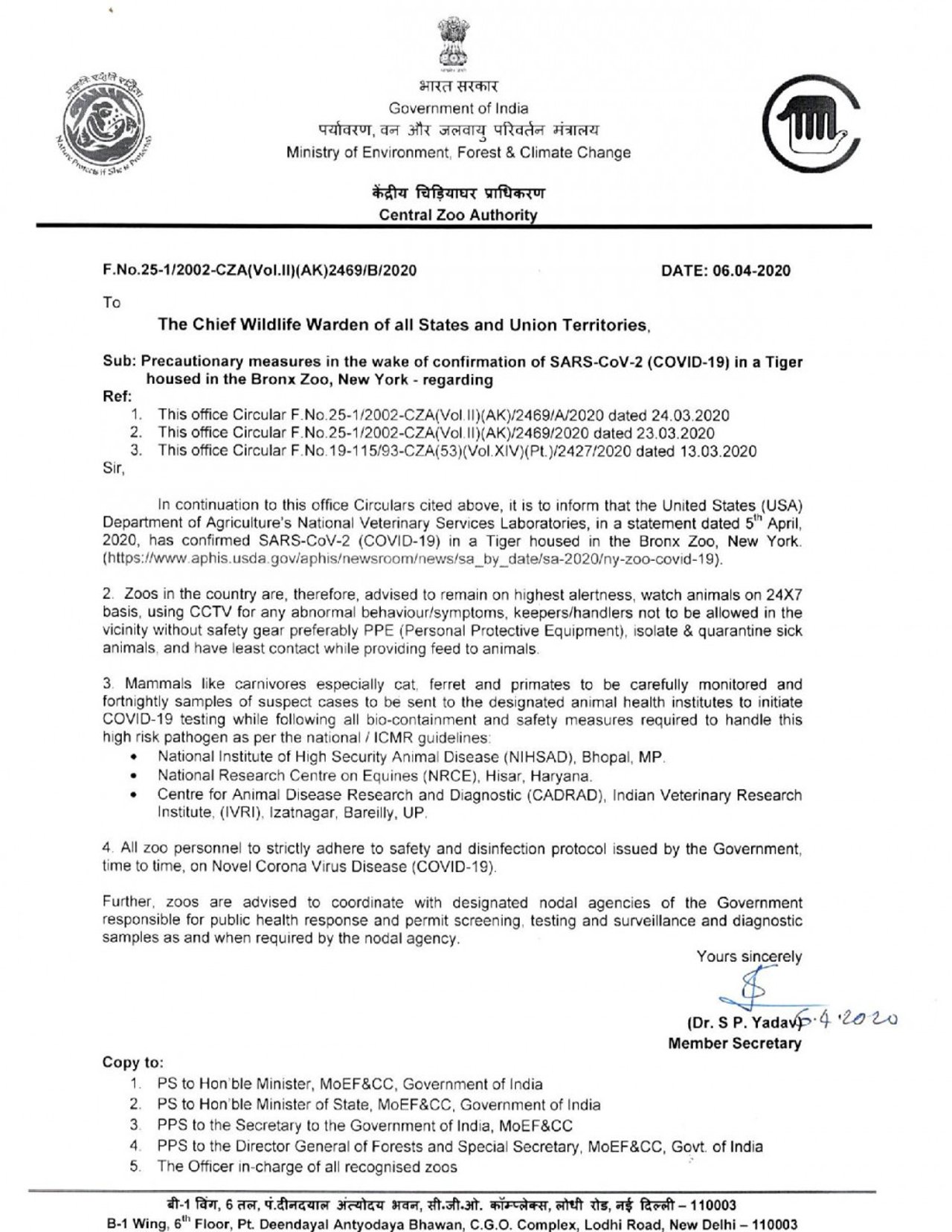
Our cats were infected by a person caring for them who was asymptomatically infected with the virus or before that person developed symptoms.
What happened when Nadia had tested positive for coronavirus?
When Bronx Zoo in New York, USA, announced on 5th April 2020, that one of their Malayan tigers, named Nadia had tested positive for coronavirus, the revelation sent waves across the world. Nadia, her sister Azul, two Amur tigers, and three African lions had developed a dry cough and were expected to recover. This positive COVID-19 test for Nadia, the tigress, was confirmed by the United States Department of Agriculture’s National Veterinary Services Laboratory, based in Ames, Iowa.
The Press release from Wildlife Conservation Society
The press release from Wildlife Conservation Society further stated, “None of the zoo’s snow leopards, cheetahs, clouded leopard, Amur leopard, puma or serval are showing any signs of illness. Our cats were infected by a person caring for them who was asymptomatically infected with the virus or before that person developed symptoms. Appropriate preventive measures are now in place for all staff who are caring for them, and the other cats in our four WCS zoos, to prevent further exposure of any other of our zoo cats.”
Press statement by Dr. Jan Schmidt-Burbach
Given that this news gave rise to renewed alarm on the human-animal relationship with reference to the emergence and subsequent spread of coronavirus, World Animal Protection issued the following press statement by Dr. Jan Schmidt-Burbach, International Veterinary Advisor of the organization: “This reported case is yet another example of the risks of close interaction between wild animals and people. Sixty percent of emerging infectious diseases are zoonotic, meaning they originate from animals, with 70% of this thought to originate from wild animals. The demand for and exploitation of wild animals exposes us to disease and puts us all at risk. Zoos around the world must implement stringent safety measures to ensure more captive wild animals aren’t at risk. The needs of wild animals can never be fully met in captivity and zoos have an obligation to address their safety and welfare. It’s important to stress that there is no evidence that wild animals or pets can carry COVID-19 and pass it on to humans or even back to other animals. This pandemic should under no circumstance be used as a justification of animal culling or decimation of animals in the wild.”
(Picture Credit: Shreya Singha Ray)
Report of the tiger contracting coronavirus in Bronx Zoo
The World Animal Protection India office also emphasized, "We are concerned to read the report of the tiger contracting coronavirus in Bronx Zoo in New York. We recommend all zoo animals be kept under observation, with proper care and veterinary attention and be treated humanely on all occasions." The World Animal Protection position on this important development was carried out in regional print and online media as well as the national public broadcaster of India, All India Radio.
Guidelines issues to zoos and national parks in India
After this revelation, government agencies in India like the Ministry of Environment and Forests, Central Zoo Authority and National Tiger Conservation Authority issued guidelines to zoos and national parks in India to be vigilant in managing the animals under their care. These guidelines are reproduced here in the hope of raising awareness on the subject and to reiterate the fact that World Animal Protection is in favour of humane treatment of tigers and all other animals in the midst of this crisis, both in the wild and in captivity.
Sixty percent of emerging infectious diseases are zoonotic, meaning they originate from animals, with 70% of this thought to originate from wild animals. The demand for and exploitation of wild animals exposes us to disease and puts us all at risk.


